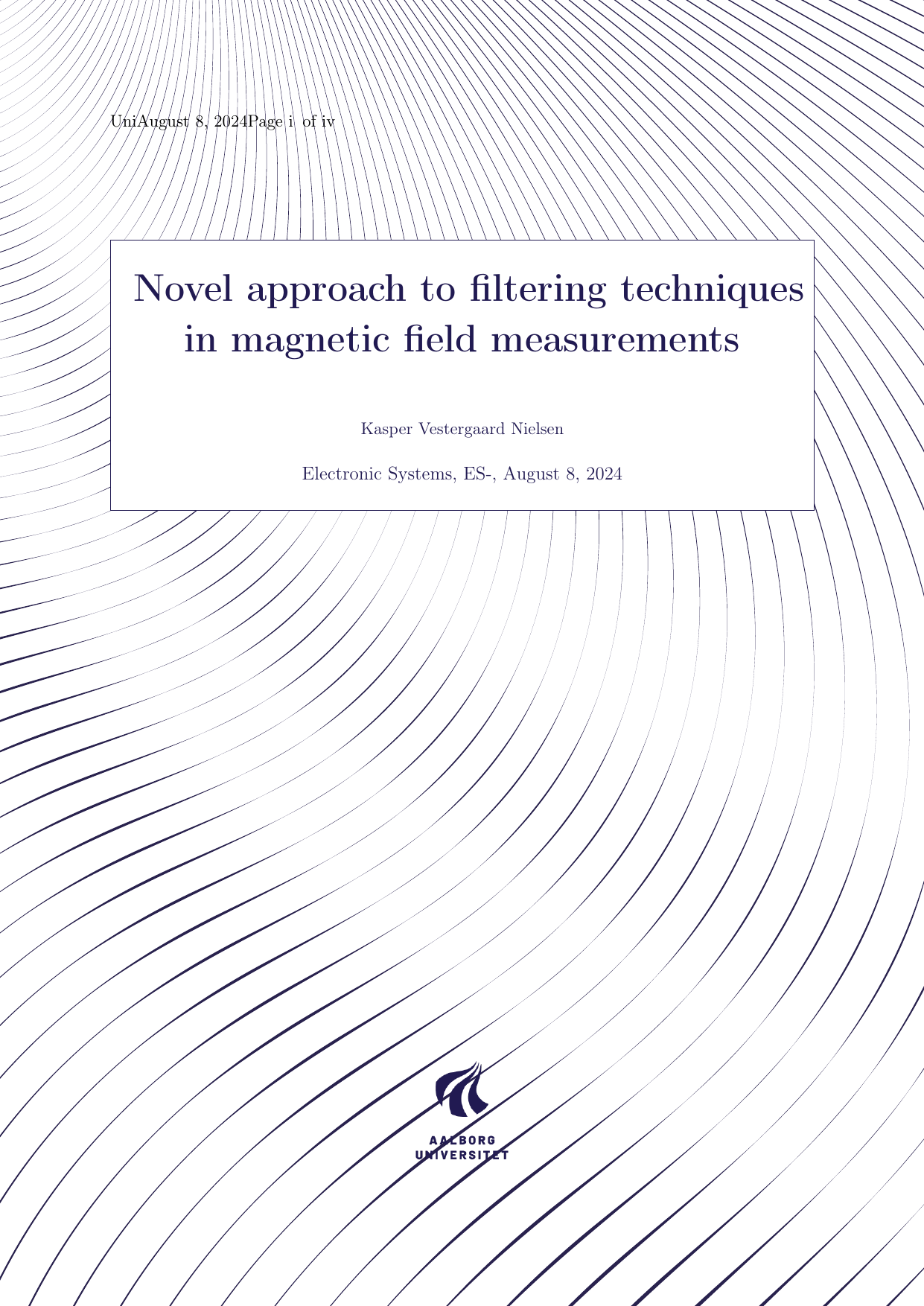
Novel approach to filtering techniques in magnetic field measurements
Author
Term
4. semester
Education
Publication year
2024
Submitted on
2024-08-08
Pages
78
Abstract
This report addresses the challenges in accu- rate solenoid measurements with filtering tech- niques in the framework of electron cooling. The overview of the general principles of elec- tron cooling outlines the need for accurate flat magnetic fields. To measure the magnets a new design to the translating fluxmeter developed at CERN is presented and analysed. The analysis finds that while the performance of the large fluxmeter coils is good, the small- est coils can tend to have a drift noise. A customised filter for the specific fluxmeter is presented using a combination of Kalman and low-pass filtering. The proposed solution is tested on a simulation to estimate the fil- ter performance and choose a filter design. To compare the filter performance against state- of-the-art solutions the filter is tested on a pre- viously used dataset. The specific project is addressed using the cur- rent measurement setup and an applied filter to increase the performance of the smallest fluxmeter coils. The experiments show that while the applica- tion of a filter is possible and can improve some signals, the relation between measurements needs to be well defined before it makes sense to use Kalman filtering on different coils on the same fluxmeter. The study finds that the de- velopment of better field models is needed to further increase the usability of Kalman filter- ing in fluxmeter measurements.
This report addresses the challenges in accu- rate solenoid measurements with filtering tech- niques in the framework of electron cooling. The overview of the general principles of elec- tron cooling outlines the need for accurate flat magnetic fields. To measure the magnets a new design to the translating fluxmeter developed at CERN is presented and analysed. The analysis finds that while the performance of the large fluxmeter coils is good, the small- est coils can tend to have a drift noise. A customised filter for the specific fluxmeter is presented using a combination of Kalman and low-pass filtering. The proposed solution is tested on a simulation to estimate the fil- ter performance and choose a filter design. To compare the filter performance against state- of-the-art solutions the filter is tested on a pre- viously used dataset. The specific project is addressed using the cur- rent measurement setup and an applied filter to increase the performance of the smallest fluxmeter coils. The experiments show that while the applica- tion of a filter is possible and can improve some signals, the relation between measurements needs to be well defined before it makes sense to use Kalman filtering on different coils on the same fluxmeter. The study finds that the de- velopment of better field models is needed to further increase the usability of Kalman filter- ing in fluxmeter measurements.
Keywords
Documents
